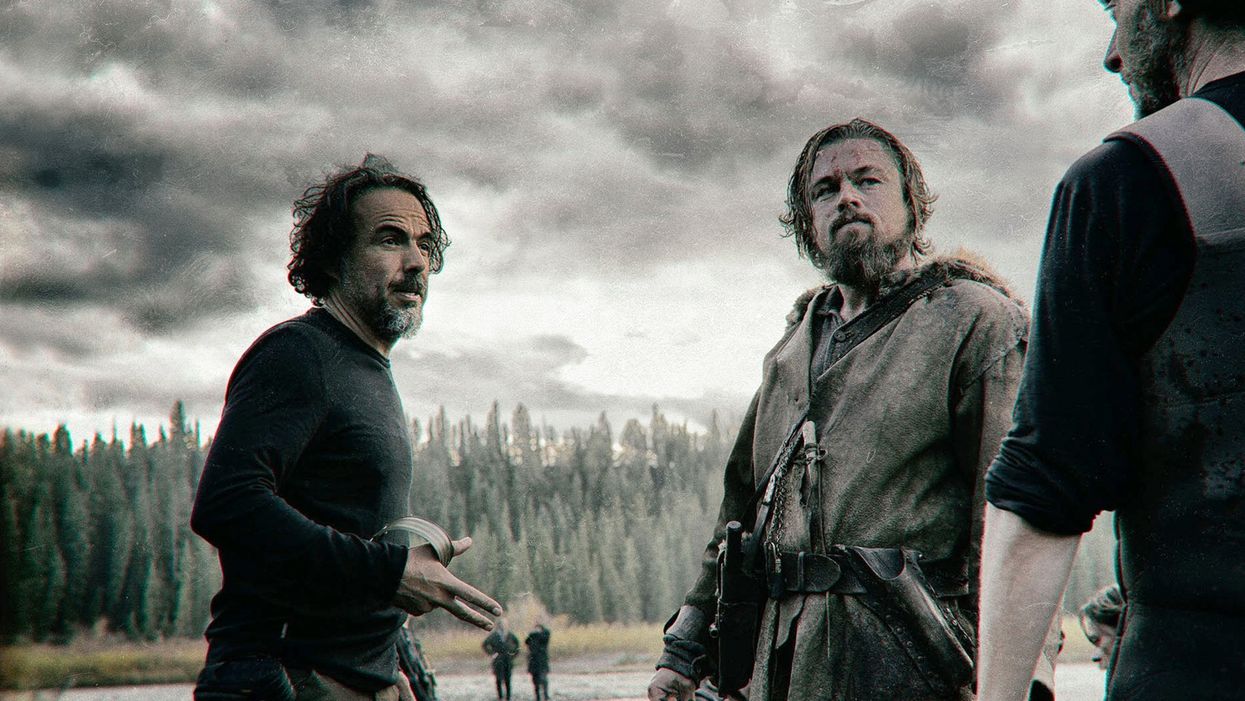Crew Calls Production of 'The Revenant' a Living Hell: When Is a Director Asking for Too Much?
Last week, the first trailer for The Revenant took the internet by storm, but Chivo's medium format cinematography is far from the only story emerging from the trenches of the production.

In a particularly concerning report from The Hollywood Reporter, Kim Masters outlines a laundry list of issues that have apparently plagued Alejandro G. Iñárritu's followup to the highly-acclaimed Birdman. These issues range from the project going significantly over schedule and over budget (it was scheduled to wrap in March, but it's currently still shooting halfway around the world from where it started), to a conflict between the director and producer that lead to communication breakdowns and wasted time in particularly foreboding conditions.
Most troublingly, however, are reports that cast and crew safety was jeopardized, although this is disputed by both the studio and several crew members. In addition, there are reports that upwards of 20 crew members quit the production outright, or were fired. One anonymous crew member even went so far as to call their experience on the production "a living hell."
Of course, the wilderness of Alberta is not a particularly welcoming place in the dead of winter, as evidenced by reports that temperatures on the production often fell below -25 degrees, with it feeling significantly colder with wind chill. Then, when you factor in that the film was shot in sequence and only in natural light, it's no surprise that the production was extremely challenging for everybody involved. However, it's incidents like the following that have some people questioning the ethicality of the production in general.
Leaving little time for the crew to prepare, Inarritu decided that a naked character should be dragged along the ground. The director remembers being concerned about the actor's genitals and laying down plastic sheeting to protect him. "I asked him several times, 'Are you fine?' " says Inarritu. Each time he asked, he says the actor replied that he was prepared to try another take. "I was super considerate because he was a nice, 22-year-old guy," says Inarritu. While crew members say the actor was in pain, Inarritu dismisses that as "a lie."
Despite the concerns being raised about crew safety, both the studio and other high-ranking crew members insist that safety was a top priority and that industry standard safety guidelines were followed at all times throughout the process. And despite these concerns, the director stands by his decision to shoot the film the way he did.
Some crewmembers believe a lot of misery could have been avoided — and money saved — if at least some parts of the movie had been conceived with computer-generated effects. "That's exactly what I didn't want," counters Inarritu. "If we ended up in greenscreen with coffee and everybody having a good time, everybody will be happy, but most likely the film would be a piece of shit." Revenant is about survival, he says, and the actors and crew benefited from having to make it in nature. "When you see the film, you will see the scale of it," promises Inarritu. "And you will say, 'Wow.'"
Personally, this feels more like a mismatch of expectations than anything else. It seems like communication wasn't where it should have been between key members of the production, which lead to some members of the crew perhaps having different expectations than what they were ultimately asked to endure. If that's the case, then somebody higher up in the production should absolutely be held responsible. When it comes to productions like this, the people who participate need to know exactly what they're getting themselves into.
Regardless of the outcome of these complaints, the whole ordeal raises some complicated questions about the filmmaking process when it's taken to the extremes. Where do you draw the line when it comes to the human cost of producing an ambitious film? How far is too far when it comes to getting the shot and making great films, even if standard safety protocols are followed? If cast and crew members sign up for a production that is going to be rough, and they're well informed about the potential challenges, is it fair if they complain when it turns out to be rough?
What do you think? Did Iñárritu and his team take this concept and production too far, or is this just the cost of creating ambitious films? Share your thoughts with us down in the comments.
How Leonardo DiCaprio's 'The Revenant' Shoot Became "A Living Hell" - The Hollywood Reporter
Source: The Hollywood Reporter













